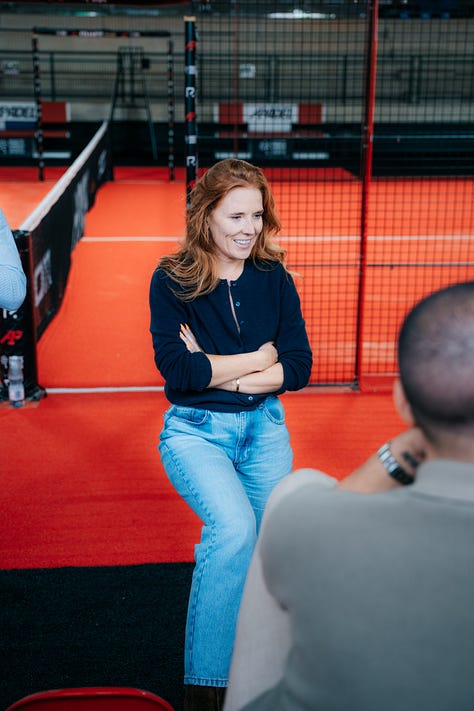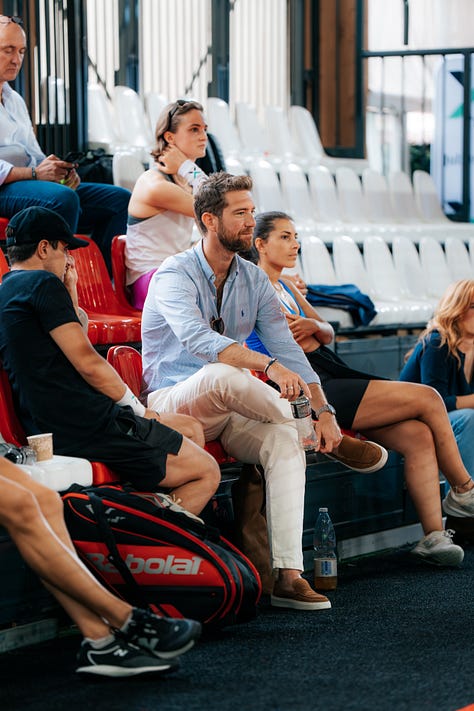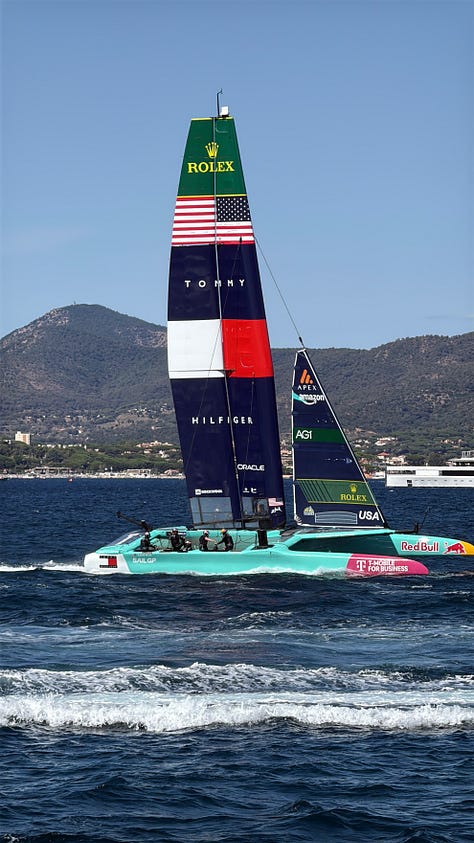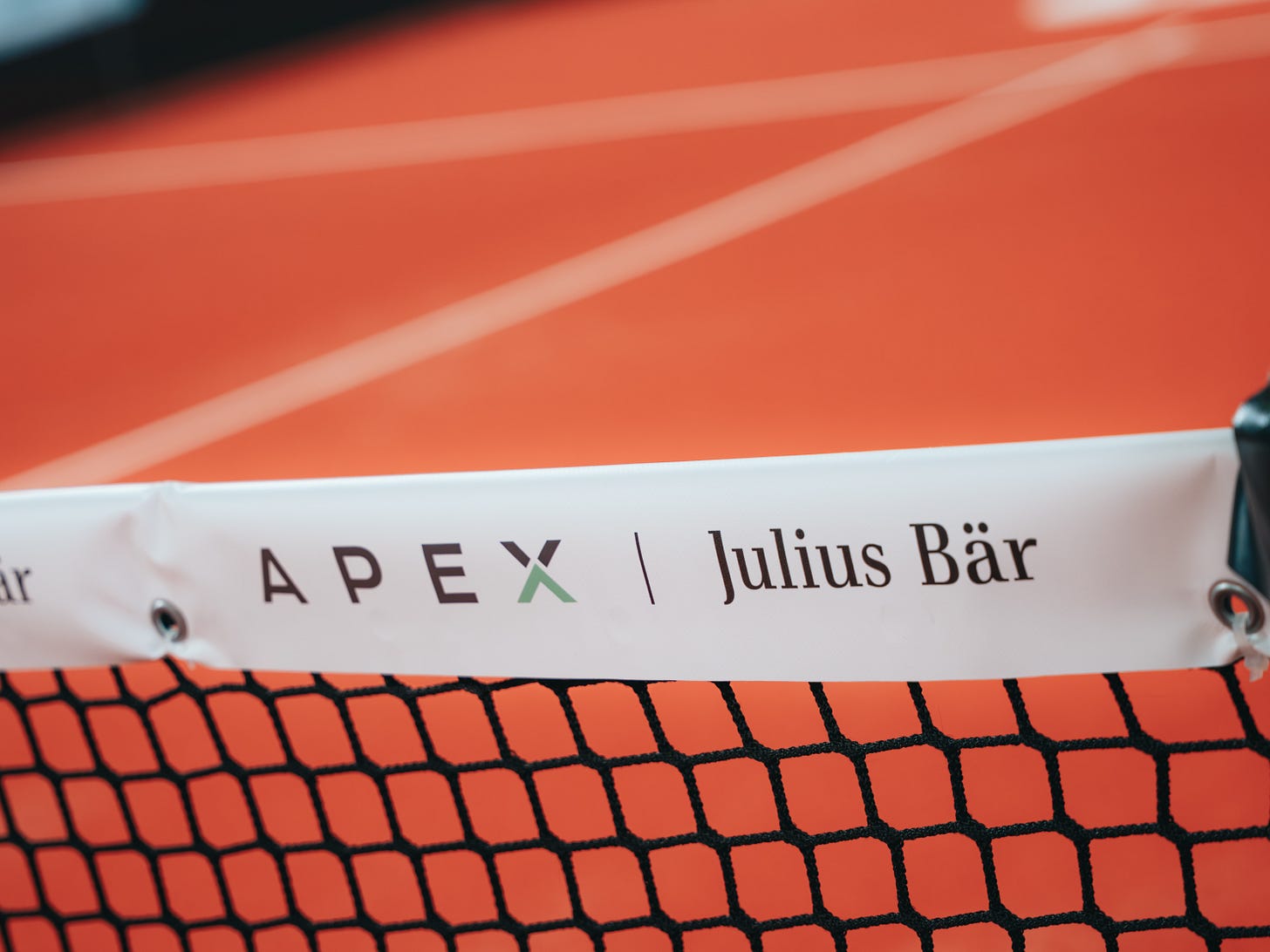The case for athletes investing in sports
Equity, legacy, and the new playbook for athletes.
Thank you for being here. You are receiving this email because you subscribed to Idée Fixe, the newsletter for curious minds. I’m Toni Cowan-Brown, a tech and F1 commentator. I’m a former tech executive who has spent the past five years on the floor of way too many F1, FE, and WEC team garages, learning about the business, politics, and technology of motorsports.
⏳ Reading time: 6min
Last week, I went to the SailGP race in St Tropez (thank you, Team USA for having me), and whilst I was out there, I also spent the day in Monaco with the APEX team, and some of their athlete-investors and friends doing good things in the sports space, and that’s precisely what I want to talk about today.
The athlete-investor era is here. The old script - play, endorse, retire, then maybe buy a golf course - has been rewritten. Today’s stars are thinking like venture capitalists, private equity partners, and media founders before they even hang up their cleats or helmets.
For tech and motorsports, this is especially intriguing. These are industries where innovation, storytelling, and fan engagement tech are the lifeblood of growth. Athlete-investors aren’t just participating in the economy of sport; they’re shaping its future infrastructure. The question now isn’t whether athletes will invest in sports. But rather, which sports will benefit most from their capital, their platform, and their cultural gravity?
From “Shut up and dribble” to stakeholders
For decades, athletes were told to stay in their lane. Win games. Cash checks. Smile for the endorsement deal. The cultural shorthand for this dynamic was captured by that crass phrase - “shut up and dribble.”
But the 2020s belong to a very different kind of athlete. They aren’t just playing the game; they’re buying into it. They are owners, investors, funders, and founders. They see sports not just as their workplace but as a piece of the economy they can help reshape. In other words, they want equity - both in the social sense and in the shareholder sense.
What we’re witnessing is a generational shift: athletes as icons, activists, and now allocators of capital. And it’s changing both the culture and the economics of sports. And this shift makes sense if we analyse the broader landscape: allegiances to teams and athletes were tied to local identity and community but global broadcasting & streaming, and the evolution of athletes as global icons have shifted this. Social media also turned athletes into content creators, speaking directly to fans and bypassing traditional team/league structures.
Sports as an asset class, not a vanity project
The global sports industry has slowly been transformed from passion-driven ventures into a professionalised, institutional-grade asset class. Not long ago, buying a team was considered a billionaire’s vanity purchase. Today, it’s a sophisticated investment strategy. Sports franchises are appreciating assets, often outpacing the stock market. Global media rights are ballooning, direct-to-consumer streaming is opening new revenue streams, and fan engagement technology is turning stadiums into data-rich platforms.
Serena Williams, on owning a WNBA team and investing in women’s sports:
“There is no risk (factor). Women’s sport is exciting, women are exciting to watch. More people watched the women’s college basketball than the men. I think that people are realising that it’s exciting to watch.”
Athletes see this, and they want to be on the cap table. In fact, some are building entire investment vehicles to make sure they are. Apex Capital - a fund explicitly designed for athlete-backed investments in sports, media, and tech - has enlisted everyone from F1 drivers to Premier League footballers as LPs. They; ‘ve actually recently crossed the 100+ mark of athletes-investors. They’re investing not just in teams but in the infrastructure that powers sports, such as data platforms, AI technology, and content studios. And just in case you needed some numbers to convince you.
“We are pioneers in understanding the value of athletes[…] At the end of the day, if you need to pick and choose your investors, you’ll always want athletes because you can recognise that they can bring a lot of value beyond the money.” - Antonio Caçorino, APEX CEO
By the Numbers: Sports as an Asset Class
7x – Average increase in global franchise valuations since 2004 (across NBA, NFL, F1 teams)
$900M – The Alpine F1 team valuation in its 2023 stake sale to Otro Capital & RedBird
$71B – Projected size of the global sports market by 2028, up from $486B in 2012
12–15% – Average annual growth rate of media rights for top leagues over the past decade
50%+ – Share of U.S. athletes under 30 who now have some form of investment syndicate or venture vehicle
The European play: F1 and beyond
Take Formula 1. When Alpine sold a 24% stake to a consortium led by Otro Capital and RedBird, the headlines weren’t just about valuation. They were about who was buying in: Patrick Mahomes, Travis Kelce, Rory McIlroy, and Anthony Joshua. In one stroke, Alpine gained a global set of ambassadors and shareholders who could amplify its brand across continents and sports.
Even outside F1, the story is similar. French driver Pierre Gasly became an investor in FC Versailles, a third-division football club, not just as a passion project, but to shape its future and strengthen its community ties. And in sailing, SailGP has drawn athlete investors including Deontay Wilder and Kylian Mbappé, betting that a fast, tech-driven, sustainability-focused league can capture a new generation of fans. And in the case of the USA SailGP team, the list of athletes who have invested in the USA SailGP is even longer, including the likes of NFL players DeAndre Hopkins, Roquan Smith, Malik Jackson, and Kayvon Thibodeaux; boxer Deontay Wilder; and soccer player Jozy Altidore.
America’s new athlete-owners
In the U.S., this trend is turbocharged by a uniquely American culture of player empowerment. Think LeBron James’ SpringHill Company, Serena Williams’ Serena Ventures, or the athlete-led investment syndicates that back everything from wellness brands to women’s sports leagues.
One of the most exciting examples is Unrivalled, a new women’s 3x3 basketball league. Its early investors include Coco Gauff, Giannis Antetokounmpo, Alex Morgan, and Michael Phelps - not just writing checks, but shaping league governance, player equity, and the economics of women’s sports. Track & field is about to follow suit with Athlos, a team-based league launching in 2026 with Sha’Carri Richardson and Gabby Thomas as part-owners.
This is more than ownership; it’s athlete-led entrepreneurship, setting the terms of how the next generation of leagues are structured, marketed, and monetised. This is exciting as it feels like athletes are playing a big part in shaping the next generation of sports teams, fandoms and the sports media landscape.
Why it matters: culture + capital
When athletes invest, they don’t just bring capital, as APEX rightly points out. They also bring culture and a deep understanding of this shifting landscape. Their involvement often accelerates a sport’s visibility, credibility, and appeal to new audiences. They can insist on values that might otherwise be afterthoughts - pay equity, diversity, environmental impact - and have the leverage to make them real.
“We are pioneers in understanding the value of athletes[…] At the end of the day, if you need to pick and choose your investors, you’ll always want athletes because you can recognise that they can bring a lot of value beyond the money.” - Antonio Caçorino, APEX CEO
There’s also a storytelling element. Fans no longer just follow teams; they follow people. When their favourite athlete is a partial owner of a team or league, it deepens loyalty. It blurs the line between spectator and shareholder - you’re not just watching your favourite athlete play, you’re watching them build, you are invested. It’s almost like modern fans have their own sports portfolio of teams and athletes they support.
Of course, not every investment will be a slam dunk. Emerging leagues/series can fail. Governance is tricky, and athletes may have less decision-making power than the headlines suggest. But the upside - financial, cultural, and reputational - is compelling enough that more and more athletes are willing to take the bet. Finally, it’s worth pointing out why sports are such a valuable asset class - live sports remain uniquely valuable in an era of digital content overload. That scarcity is worth a premium.









🔗 Andy Roddick Has a New Title: ‘YouTube Guy’ | New York Times
These days, it seems everyone has a podcast. But not everyone has a sterling silver Grand Slam trophy. Whenever Andy Roddick returns to the grounds of the U.S. Open — as he did this year to record his show, “Served,” before a live audience — he no longer knows whether fans know him more for his game or his podcast. Read here.
🔗 2025 US Open breaks Honey Deuce record | Boardroom
I warned you all that the Honey Deuce were lethal and you should only drink one - but I guess you didn’t listen. Jokes side, the incredible sales of the Honey deuce - the real winner of the US Open - have directly impacted the prize pot size at the US Open so it’s actually a good thing. Read here.





